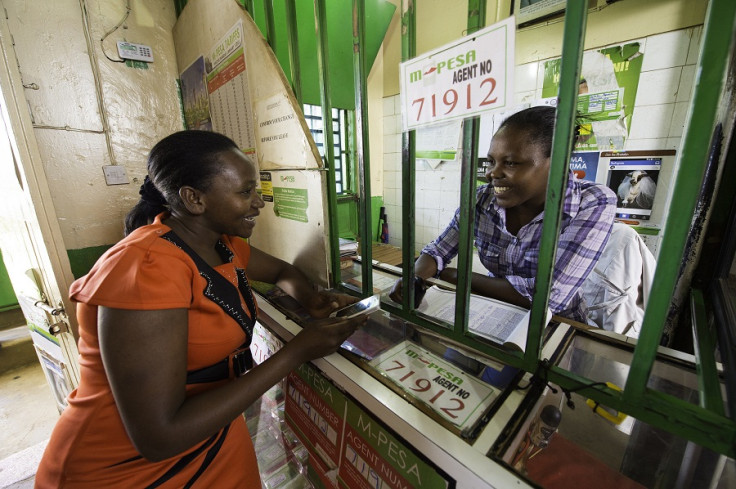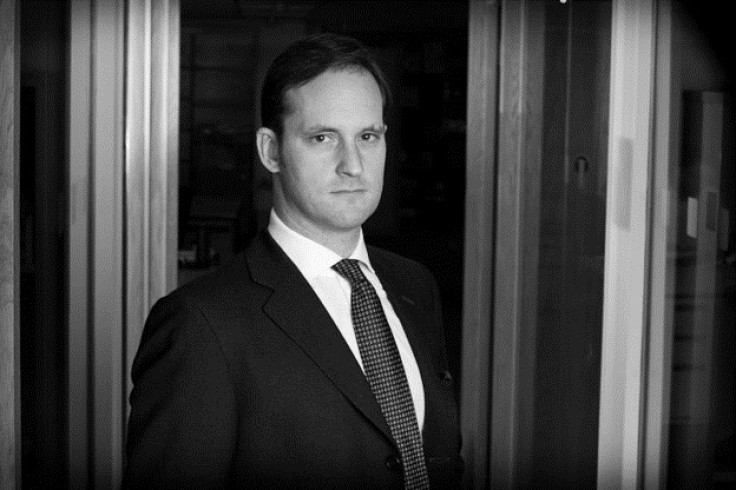Meet the people adding $3.7 trillion to the developing world with financial inclusion
IBTimesUK spoke to Kosta Peric of the Bill & Melinda Gates Foundation and Wayne Hennessy-Barrett, CEO, 4G Capital.

Delivering financial services to the developing world's unbanked people will add $3.7 trillion to the GDP of emerging economies within a decade, according to a recent report by McKinsey.
Some two billion individuals and 200 million micro, small and midsize businesses in emerging economies today lack access to savings and credit, while those with access must often pay high fees for a limited range of products. Bringing about financial inclusion is a collaborative effort from the level of central banks, cooperating in mobile money systems, down to micro-finance projects providing business loans to street vendors in sub-Saharan Africa.
For instance, the Bill & Melinda Gates Foundation has a dedicated team for financial inclusion and digital innovation. Kosta Peric, the Gates Foundation's deputy director of Financial Services for the Poor, said: "When I talk to banks, it's a call to action, letting them know that financial inclusion can be a profitable business. It requires a different approach and a mix of new technologies, but has huge potential both on the country side and also for profit making private entities that are looking for new markets."
Peric has seen much more focus lately from governments and central banks in Africa and Asia. He also mentioned some interesting concrete examples of innovation, such as a recently launched interoperable mobile money system covering the whole of Peru and run by its central bank. Meanwhile, four mobile money providers in Tanzania have begun interoperating, and showing quite dramatic increases in volume.
"These types of innovation are how we envisage our Level One Project, which is to foster the creation of a fully digital and super low cost and very scalable system that also interconnects with what already exists," said Peric.
An example of what he means is clearing and settlement between different providers. At best you can expect things to be settled the next business day. "So this doesn't work," said Peric. "In a digital system that is focused on the needs of financial inclusion and poor people it needs to be real time and irrevocable. We have looked at ways to make it almost real time or as close as possible.
"This reduces risk in the system. These providers could be non-banks and under the regulatory regimes of most countries they would be subject to risk controls, to prevent one of them from failing by owing too much money to others."
There are potential solutions here inspired by blockchain design and innovations like Ripple's Interledger Protocol to connect various financial ledgers, noted Peric.
He also said to reach a goal of 80% financial inclusion means crowding the market with more players who are closer to customers in rural areas or the specific populations like farmers.
"These are not banks so it's important that the system implements controls of risk management and fraud management, because these new players are not necessarily equipped as well as the banks to do this in a regulated way."
4G Capital is a fintech company that is doing pretty well providing financial services to very small businesses in rural areas across Kenya. This multi-award winning unsecured business loan provider offers a highly successful line in micro-lending, complimented by customer training for self-employed traders that lack the education opportunities or the life skills to unlock their potential.
This year alone 4G Capital has scooped two impact awards, including being a finalist in the prestigious MasterCard Foundation Clients at the Centre Prize.
Wayne Hennessy-Barrett, CEO, 4G Capital reels off some impressive statistics: over 80% repeat business; 82% female customers; 65% of all customers over a 12 month period grow their business by an average of 300%.
"That is directly attributable to the credit we provide and also very importantly the business training we provide," he said.

"For last 18 months we have had 72% net promoter score (NPS) which is the industry standard for kind of - would you recommend this to their friends? It's a really big deal. I think Apple is about 65%. Generally financial services is around 36%."
In order to achieve these kinds of results, Hennessy-Barrett, who incidentally is also an advisor to Ethereum, has been strengthening his data strategy. He has been using simple feature phones to conduct surveys via SMS to add to his existing customer database.
He said: "We are trying to make better use of our data in order to develop more predictive credit products for micro segmentation. There is a huge amount of difference between a lady selling fruit and veg in a rural market and a small household goods trader; their business cycles and their margins are very different.
"We don't need to buy other people's data - frankly what we do is much purer. Our approach allows us to go into data-dark areas and come up with very strong insights based on conversations using low tech, feature phones. That allow us to reach, not just the financially excluded, but what I call the network excluded, the really marginalised.
In terms of data sharing, 4G Capital's customers who want to graduate to a bank can have their credit data exported with them. "This is part of what we can give you, because actually it's not our data, it's the customer's data.
"We have a platform that we want to be the go-to for business working capital across sub-Saharan Africa. And it's a platform for investors to redeploy standing pools of capital and achieve risk adjusted yield but also transformative social effects."
4G Capital is currently building out its data science and analytics capabilities. Data scientists who would like to take part in a truly innovative financial inclusion project in sub-Saharan Africa are invited to get in touch with Wayne.
Newsweek and International Business Times are to host an Artificial Intelligence and Data Science in Capital Markets event, taking place on 1 and 2 March 2017 at the Barbican in the City of London.
© Copyright IBTimes 2024. All rights reserved.






